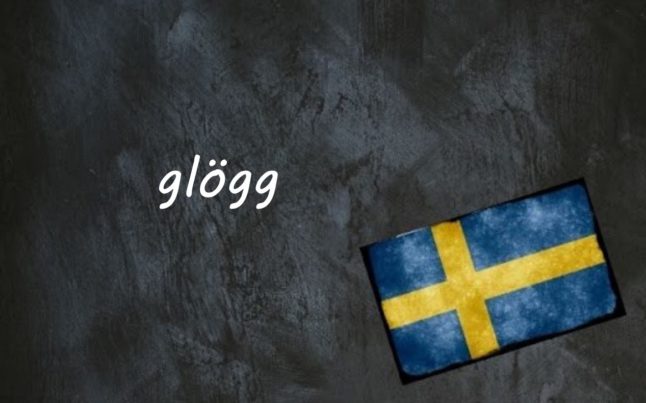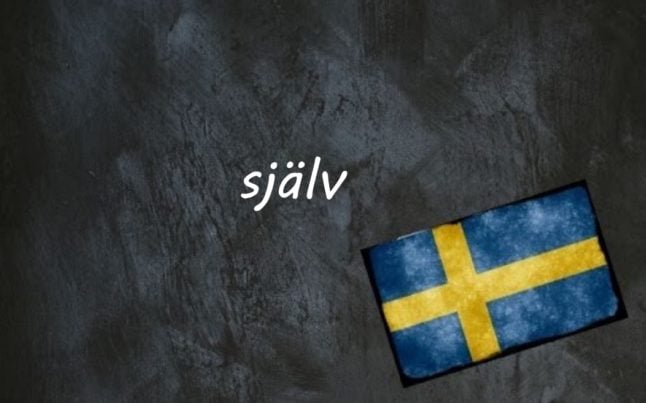Glögg is Swedish mulled wine: heated wine, usually red – although white varieties are available too – with spices, almonds and raisins added in. You’ll also see alcohol-free versions, made with juice or simply non-alcoholic wine.
It’s exceptionally popular, almost exclusively drunk around the Christmas season, and glöggfester (glögg parties) are common.
The pronunciation of glögg sounds ever so slightly like the noise you make while gulping down a mug of the stuff at a cold Christmas market, but the origin of the word is not onomatopoeic. It actually comes from the Old Swedish word glödg, a noun made from the verb glödga.
RECIPE: How to make your own Swedish glögg
Delving back even further, glödga has its origins in the verb glöder (to glow), and literally meant something like “to heat up until it glows”. Heated wine was popular even among the ancient Greeks and Romans, who also added spice to the concoction, very likely to counter impurities in the wine.
- Don’t miss any of our Swedish words and expressions of the day by downloading The Local’s new app (available on Apple and Android) and then selecting the Swedish Word of the Day in your Notification options via the User button
These days, glödga has a narrower meaning, “to mull”, and like the English verb this can refer to warming drinks or to considering something and “mulling it over” in one’s mind (although it’s unlikely you’ll actually hear Swedes use it in the latter context).
The oldest written record of the word glögg is from the early 19th century, even though Swedes have been warming up their wine in winter for centuries before that. Records of glödgat vin date back to the 1600s, and we know that Gustav Vasa, one of Sweden’s most famous rulers in the early 1500s, drank wine heated up with honey, cinnamon, cardamom and ginger.
Swedish mulled wine, and with it the word glögg, has been exported to neighbouring countries, giving rise to the word gløgg in Denmark and glögi in Finland.
Example sentences:
Glögg är en väldigt viktig dryck runt jul
Glögg is a very important drink around Christmas
Glögg dricks ur små koppar och serveras med mandel och russin eller pepparkakor
Glögg is drunk from small cups and served with almonds and raisins or gingerbread
Need a good Christmas gift idea?
Villa, Volvo, Vovve: The Local’s Word Guide to Swedish Life, written by The Local’s journalists, is available to order. Head to lysforlag.com/vvv to read more about it. It is also possible to buy your copy from Amazon US, Amazon UK, Bokus or Adlibris.



 Please whitelist us to continue reading.
Please whitelist us to continue reading.
Member comments